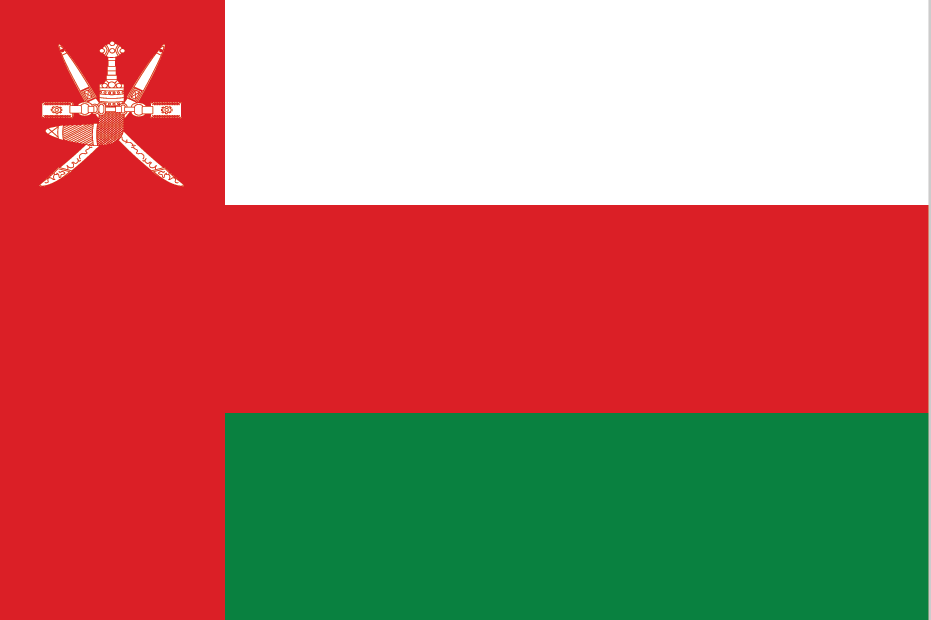
Sustainability Efforts
Country: Oman
Explore sustainability efforts in Oman. The United States Environmental Protection Agency (“EPA”) said it well when they state:
“Sustainability is based on a simple principle: Everything that we need for our survival and well-being depends, either directly or indirectly, on our natural environment. To pursue sustainability is to create and maintain the conditions under which humans and nature can exist in productive harmony to support present and future generations.”
About Oman
Oman, located in the Arabian Peninsula, is known for its diverse landscapes, rich history, and warm hospitality. It offers stunning beaches, vast deserts, and rugged mountains like Jebel Shams. Oman’s capital, Muscat, showcases a mix of modern architecture and traditional charm. The country’s cultural heritage is evident in its forts, souqs, and traditional festivals. Oman’s commitment to sustainable tourism and conservation is seen in protected areas like the Ras Al Jinz Turtle Reserve. Oman’s traditional music, delicious cuisine, and outdoor activities like diving and trekking make it a captivating destination for travelers. Sustainability efforts in Oman will enhance the country’s future.
Sustainability Efforts
Toggle each button below to “open” and “close” the presented data.

Oman has made significant strides in combating poverty through its social welfare programs. The country's National Program for Enhancing Economic Diversification (Tanfeedh) aims to reduce poverty and increase economic opportunities. According to the World Bank, Oman's efforts to reduce poverty have been successful, with the poverty headcount ratio decreasing from 2.8% in 2012 to 0.9% in 2017.

Oman's commitment to food security is evident through its national strategies and initiatives. The Omani government has invested in agricultural development, promoting self-sufficiency in key food products. These efforts have led to a significant reduction in hunger. As of the latest data, Oman has a Global Hunger Index score of 5.8, indicating a low level of hunger.

Oman has focused on improving its healthcare system to ensure access to quality medical services. The government has invested in healthcare infrastructure, including hospitals and clinics, and offers comprehensive healthcare coverage to its citizens. The country has a relatively high life expectancy of 76.6 years, demonstrating the effectiveness of its healthcare programs.

Oman is committed to providing quality education to its citizens. The government has implemented several initiatives to improve access to education, including the expansion of schools and the enhancement of curriculum. Oman's literacy rate is around 94.8%, showcasing the success of these efforts.

Oman is working towards gender equality by promoting women's participation in various sectors, including politics, education, and the workforce. In 2021, women made up 17.1% of Oman's Shura Council, highlighting progress in political representation. Additionally, female participation in the labor force has been steadily increasing.

Oman has invested in water infrastructure and management to ensure clean water and sanitation for its population. As of 2019, 95.3% of Oman's urban population had access to safely managed drinking water services. The country is also taking measures to improve sanitation and wastewater treatment.

Oman is actively pursuing affordable clean energy solutions. The country has made substantial investments in renewable energy sources, particularly solar and wind. In 2020, Oman initiated its first large-scale solar power plant, with plans to expand its renewable energy capacity in the coming years.

Oman has worked on fostering economic growth by diversifying its economy away from oil dependency. The Vision 2040 plan outlines strategies for economic diversification, attracting foreign investment, and creating job opportunities. These efforts have resulted in steady economic growth, with a GDP growth rate of 1.8% in 2020.

Oman is promoting industry innovation through its Tanfeedh program, which focuses on enhancing economic diversification and industry development. By fostering innovation and entrepreneurship, Oman aims to develop industries that are sustainable and technologically advanced.

The Omani government has implemented policies and programs to reduce inequalities, particularly in income distribution and access to services. These efforts have led to a decrease in income inequality, as evidenced by a Gini coefficient of 33.8 in 2017.

Oman is committed to building sustainable cities and communities. Initiatives include sustainable urban planning, affordable housing, and improved public transportation systems. These efforts aim to enhance the quality of life for urban residents while minimizing environmental impact.

Oman is working towards responsible consumption and production by encouraging sustainable practices in industries and households. The government promotes waste reduction and recycling and is taking steps to limit over-exploitation of natural resources.

Oman has taken steps to address climate change by promoting renewable energy, conserving biodiversity, and reducing greenhouse gas emissions. The country is committed to the Paris Agreement and is actively implementing measures to mitigate the impact of climate change.

Oman is dedicated to preserving its marine environment. The country's extensive coastline and biodiversity have led to the establishment of marine conservation areas and efforts to combat overfishing and protect fragile ecosystems, such as coral reefs.

Oman places great importance on preserving its natural environment, including its deserts, mountains, and unique ecosystems. Conservation efforts include the establishment of protected areas and wildlife reserves to safeguard the country's natural heritage.

Oman maintains a stable and peaceful society, with a strong commitment to justice and rule of law. The country's legal system upholds human rights, and Oman has been actively involved in diplomatic initiatives to promote regional stability.

Oman actively participates in international partnerships and collaborations to achieve sustainable development goals. The country engages with organizations like the United Nations and collaborates with other nations to address global challenges and promote peace and development.



